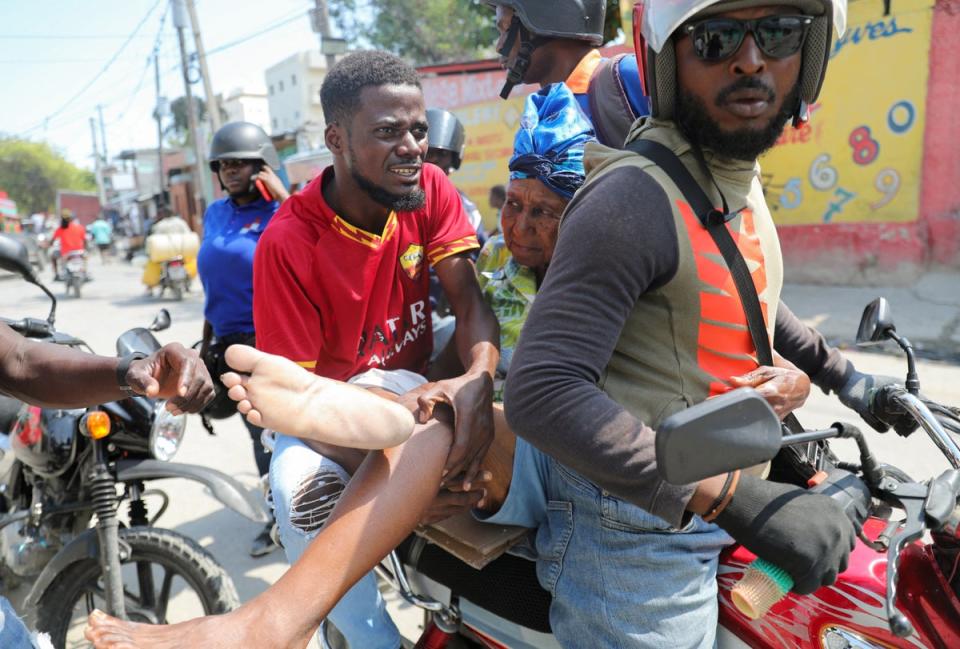Haiti prime minister resigns as criminal gangs plunge country into crisis
Haiti’s prime minister Ariel Henry has agreed to resign, bowing to international pressure to save the country which has been overwhelmed by spiralling gang violence.
He said he would step down once a transitional council is created – though it was unclear when this would happen as the security situation in the capital Port-au-Prince rapidly deteriorates.
Mr Henry, who has led the Caribbean nation since the assassination of President Jovenel Moise in 2021 but who was not elected to office, remains stranded in Puerto Rico after heavily armed gangs seized the country’s airports while he was on an overseas trip.

In a filmed statement, Mr Henry said: “The government I’m running will remove itself immediately after the installation of the council.”
Haiti, which has a long history of dictatorship, violence, coups and invasion, declared a state of emergency earlier this month as clashes led to two mass prison breaks and Jimmy “Barbeque” Cherizier, a leader of an alliance of armed groups, pledged to overthrow Mr Henry.
Dozens of people have been killed and more than 15,000 forced to flee their homes due to gang raids, with many now facing dwindling supplies of food and water.
The Jamaican prime minister, Andrew Holness, said Haiti was “now at a tipping point”.
“We are deeply distressed that it is already too late for too many who have lost far too much at the hands of criminal gangs,” he said.
Guyana’s president, Mohamed Irfaan Ali, said: “I think we can all agree: Haiti is on the brink of disaster. We must take quick and decisive action.”
[1/2]
Message du Premier ministre, @DrArielHenry, à la nation
Lundi 11 mars 2024#Haïti pic.twitter.com/3UTM8cMVR3— Primature de la République d’Haïti (@PrimatureHT) March 12, 2024
The US has airlifted in extra military muscle to guard its embassy in Port-au-Prince and secretary of state Antony Blinken announced an additional $100m to finance the deployment of a multinational force, along with a second tranche of $33m in humanitarian aid.
The crisis in Haiti unfolded while Mr Henry was in Kenya seeking a United Nations agreement to deploy 1,000 Kenyan police officers in his country to help restore security.
Although unelected, Mr Henry is the longest-serving prime minister since Haiti’s 1987 constitution was approved.
It is expected that a transitional council will pave the way for the first elections in the country since 2016.
Reuters and Associated Press contributed to this report

 Yahoo News
Yahoo News 
